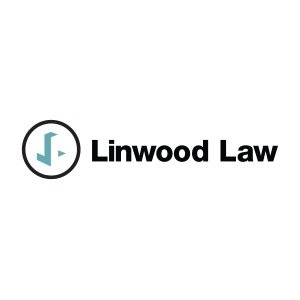Best Nonprofit & Charitable Organizations Lawyers in Christchurch
Share your needs with us, get contacted by law firms.
Free. Takes 2 min.
List of the best lawyers in Christchurch, New Zealand
About Nonprofit & Charitable Organizations Law in Christchurch, New Zealand
Nonprofit and charitable organizations play a significant role in Christchurch, New Zealand, contributing to the social, cultural, economic, and environmental well-being of the community. These organizations, often set up as trusts, societies, or charitable companies, are primarily driven by public or community benefit rather than profit. The legal framework governing these entities ensures they operate transparently and ethically, fulfilling their intended purpose. Nonprofit and charitable organizations in Christchurch must comply with both national legislation and local regulations regarding their formation, governance, and operational activities.
Why You May Need a Lawyer
Legal advice can be crucial for nonprofit & charitable organizations in a variety of situations:
- Establishing a new organization: Navigating the legal requirements for creating a nonprofit, including registration and incorporation.
- Governance issues: Developing or updating constitutions, bylaws, and governance policies.
- Tax exemptions and compliance: Applying for and maintaining tax-exempt status, and understanding related tax obligations.
- Employment law: Managing staff and volunteers within legal frameworks.
- Contractual arrangements: Reviewing funding agreements, leases, and other contracts.
- Dispute resolution: Addressing internal disputes or conflicts with other parties.
- Charity status and registration: Assisting with applications to become a registered charity with Charities Services.
Local Laws Overview
Nonprofit and charitable organizations in Christchurch are subject to several key pieces of legislation:
- Charitable Trusts Act 1957: Governs the establishment and operation of charitable trusts in New Zealand.
- Incorporated Societies Act 1908s: Provides the framework for the formation and governance of incorporated societies.
- Companies Act 1993: Applicable if the nonprofit organization chooses to incorporate as a company limited by guarantee.
- Charities Act 2005: Overseen by Charities Services, it governs registration as a charity and compliance with reporting standards.
- Income Tax Act 2007: Outlines tax obligations and available exemptions for registered charities and other nonprofits.
Frequently Asked Questions
What is the difference between a nonprofit and a charity?
A nonprofit organization is primarily designed to serve a public benefit without distributing profits to members. A charity, while also nonprofit, has specific purposes recognized as charitable under New Zealand law and often receives certain tax exemptions.
How do I start a nonprofit organization in Christchurch?
You can start a nonprofit by deciding on its structure (trust, society, or company), preparing the necessary founding documents, and registering with the appropriate authorities, such as the Companies Office for incorporated societies or the Charities Services for charities.
Are there tax benefits for charities in New Zealand?
Yes, registered charities in New Zealand may qualify for tax exemptions on income, and donors to these charities can receive tax benefits for their donations.
Do we need to register our nonprofit with Charities Services?
Registration with Charities Services is voluntary but provides benefits like tax exemptions and increased credibility. It is mandatory if you want to be officially recognized as a charity.
What are the reporting obligations for registered charities?
Registered charities must file an annual return with Charities Services, including financial statements that comply with reporting standards appropriate to their size and structure.
Can a nonprofit pay its directors or trustees?
While directors or trustees may not typically receive payment beyond reimbursement for reasonable expenses, they can be paid for services rendered beyond their governance role, though this must be clearly outlined in the organization's governing documents.
What are the legal responsibilities of nonprofit board members?
Nonprofit board members have various legal duties, including duty of care, duty of loyalty, and duty of compliance with the organization’s governing documents and laws.
Are nonprofits required to have audits in New Zealand?
Audit requirements depend on the size and type of nonprofit. Larger organizations and those receiving public funding may be required to undergo an audit or review of their financial statements.
How can we change our nonprofit's constitutional documents?
Changes usually require a member vote at a general meeting of the organization, followed by registration of the changes with the relevant authority, such as the Companies Office or Charities Services.
What should a nonprofit do to comply with employment laws?
Nonprofits must comply with New Zealand employment laws, including those related to contracts, minimum wage, leave entitlements, and health and safety standards. Legal advice can be helpful to ensure full compliance.
Additional Resources
Consider reaching out to the following resources for further assistance and information:
- Charities Services: Provides information on becoming a registered charity and maintaining compliance.
- Inland Revenue Department (IRD): For tax information and obligations for nonprofits.
- Department of Internal Affairs: Offers support for incorporation and governance under the Incorporated Societies Act.
- Community Law Canterbury: Offers free legal help to community organizations.
- Local Libraries and Community Centers: Often host guides and information sessions related to community organizations.
Next Steps
If you are seeking legal advice for your nonprofit or charitable organization in Christchurch, consider taking the following steps:
- Identify your organization’s specific legal needs, such as registration, compliance, or governance issues.
- Gather any relevant documents and information that may be required by a legal advisor.
- Consult a lawyer with expertise in nonprofit and charitable organizations to discuss your concerns. Many firms offer initial consultations to understand your needs.
- Consider attending workshops or legal clinics focusing on nonprofit legal issues to gain a better understanding of your responsibilities.
- Utilize available resources, such as Community Law Canterbury, for support and guidance.
Lawzana helps you find the best lawyers and law firms in Christchurch through a curated and pre-screened list of qualified legal professionals. Our platform offers rankings and detailed profiles of attorneys and law firms, allowing you to compare based on practice areas, including Nonprofit & Charitable Organizations, experience, and client feedback.
Each profile includes a description of the firm's areas of practice, client reviews, team members and partners, year of establishment, spoken languages, office locations, contact information, social media presence, and any published articles or resources. Most firms on our platform speak English and are experienced in both local and international legal matters.
Get a quote from top-rated law firms in Christchurch, New Zealand — quickly, securely, and without unnecessary hassle.
Disclaimer:
The information provided on this page is for general informational purposes only and does not constitute legal advice. While we strive to ensure the accuracy and relevance of the content, legal information may change over time, and interpretations of the law can vary. You should always consult with a qualified legal professional for advice specific to your situation.
We disclaim all liability for actions taken or not taken based on the content of this page. If you believe any information is incorrect or outdated, please contact us, and we will review and update it where appropriate.

















